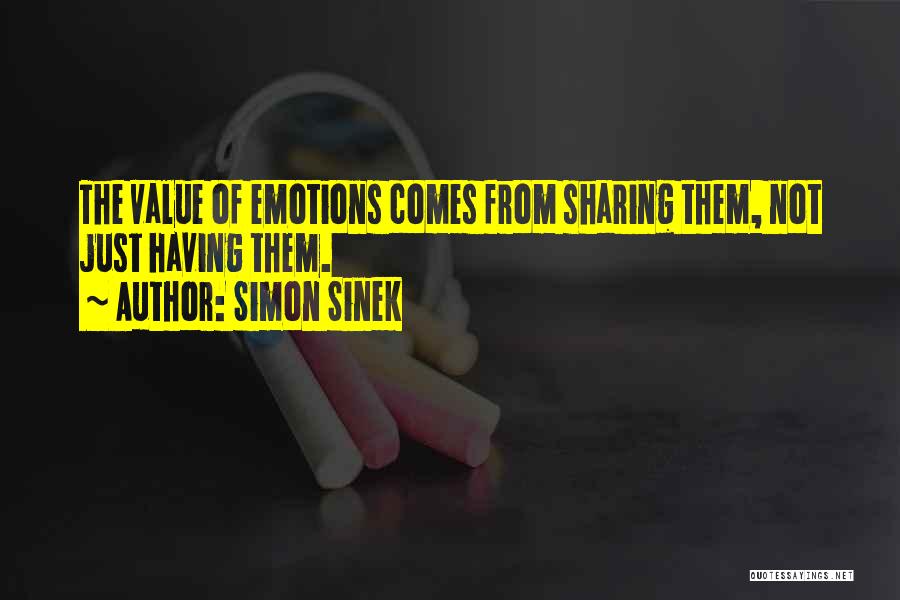No Value Of Emotions Quotes & Sayings
Enjoy reading and share 44 famous quotes about No Value Of Emotions with everyone.
Top No Value Of Emotions Quotes

This vocation of yours.
She knew that a hunger dwelled in her, in that place where happier emotions should reside, a hunger she could neither sate nor deny. While her compulsion to scratch that itch never faded, she knew that she performed a service to the world in these coll west London rooms. While it was work for which she would receive not a single word of thanks, its value, Etienne believed, could not be denied. — Stephen Lloyd Jones
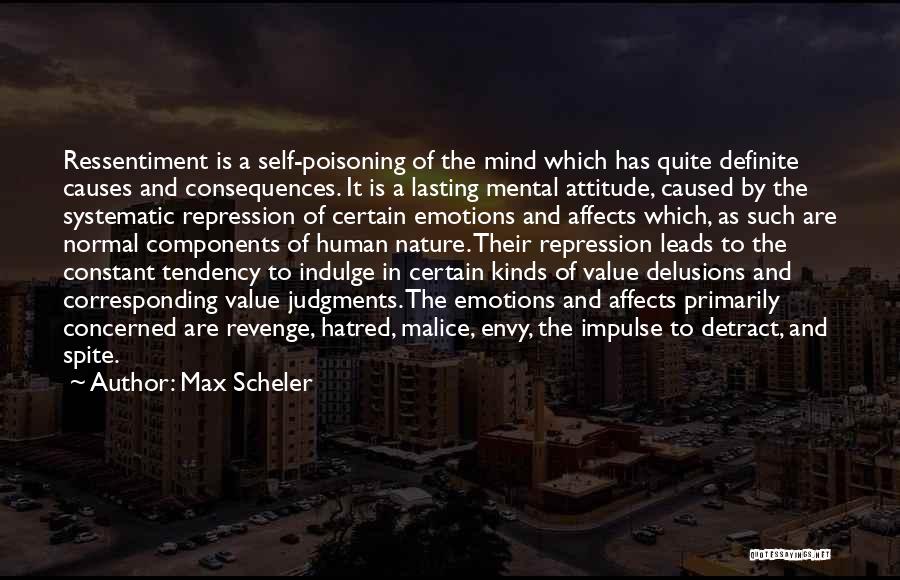
Ressentiment is a self-poisoning of the mind which has quite definite causes and consequences. It is a lasting mental attitude, caused by the systematic repression of certain emotions and affects which, as such are normal components of human nature. Their repression leads to the constant tendency to indulge in certain kinds of value delusions and corresponding value judgments. The emotions and affects primarily concerned are revenge, hatred, malice, envy, the impulse to detract, and spite. — Max Scheler
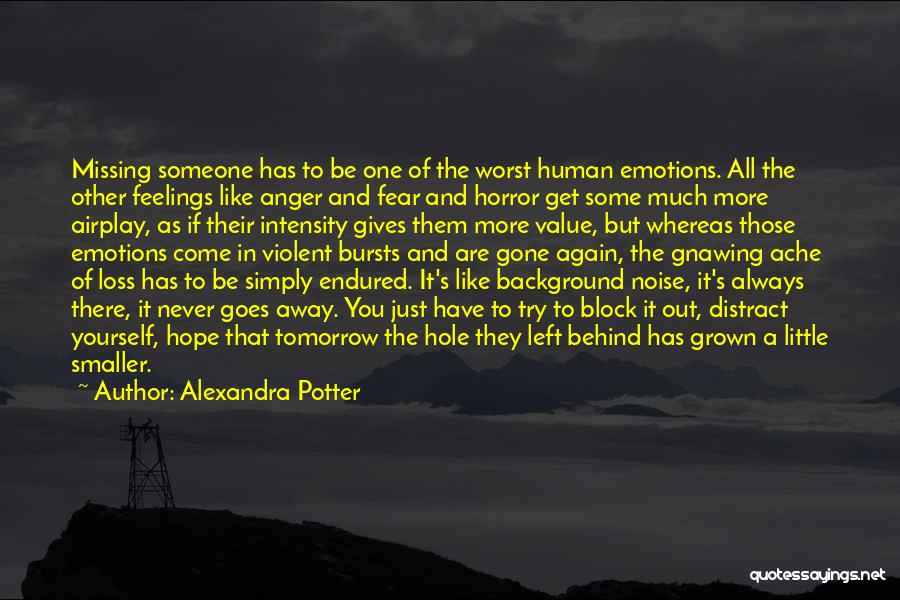
Missing someone has to be one of the worst human emotions. All the other feelings like anger and fear and horror get some much more airplay, as if their intensity gives them more value, but whereas those emotions come in violent bursts and are gone again, the gnawing ache of loss has to be simply endured. It's like background noise, it's always there, it never goes away. You just have to try to block it out, distract yourself, hope that tomorrow the hole they left behind has grown a little smaller. — Alexandra Potter
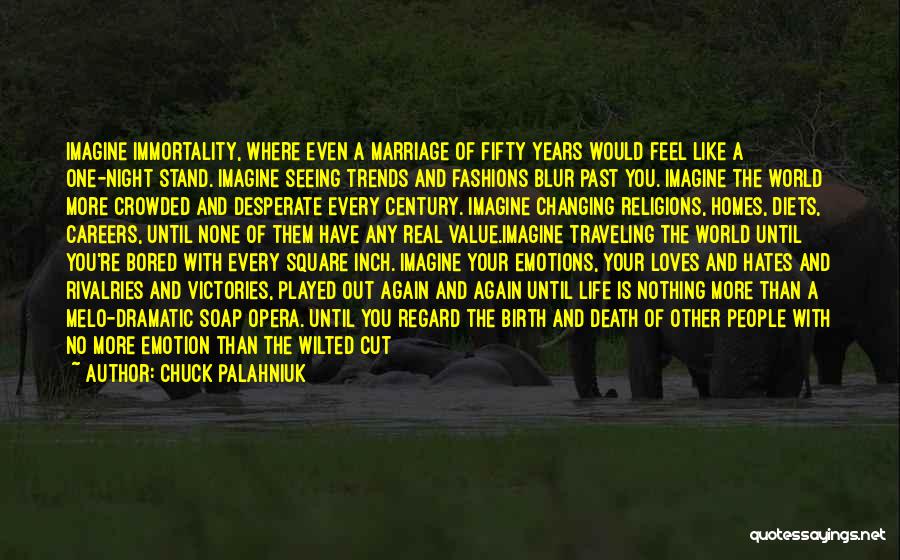
Imagine immortality, where even a marriage of fifty years would feel like a one-night stand. Imagine seeing trends and fashions blur past you. Imagine the world more crowded and desperate every century. Imagine changing religions, homes, diets, careers, until none of them have any real value.Imagine traveling the world until you're bored with every square inch. Imagine your emotions, your loves and hates and rivalries and victories, played out again and again until life is nothing more than a melo-dramatic soap opera. Until you regard the birth and death of other people with no more emotion than the wilted cut flowers you throw away. — Chuck Palahniuk
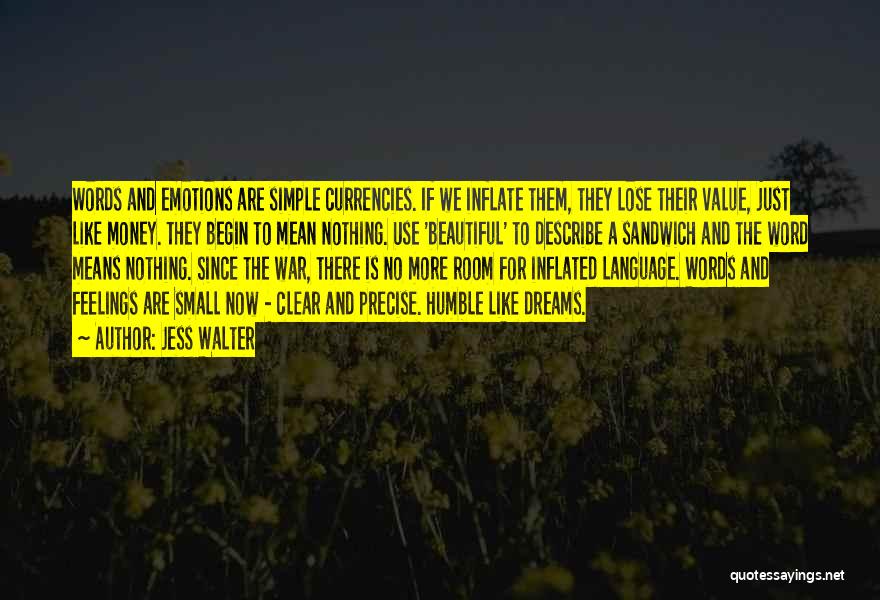
Words and emotions are simple currencies. If we inflate them, they lose their value, just like money. They begin to mean nothing. Use 'beautiful' to describe a sandwich and the word means nothing. Since the war, there is no more room for inflated language. Words and feelings are small now - clear and precise. Humble like dreams. — Jess Walter
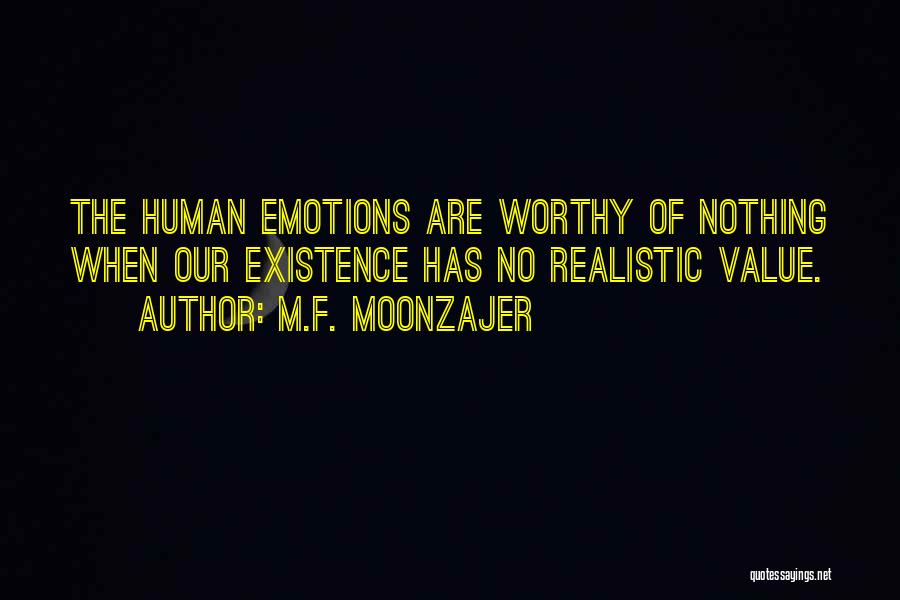
The human emotions are worthy of nothing when our existence has no realistic value. — M.F. Moonzajer
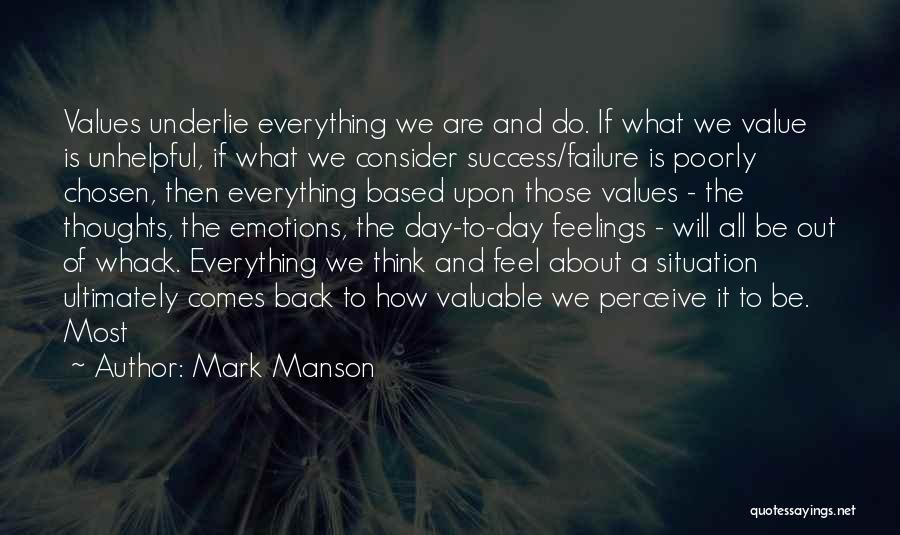
Values underlie everything we are and do. If what we value is unhelpful, if what we consider success/failure is poorly chosen, then everything based upon those values - the thoughts, the emotions, the day-to-day feelings - will all be out of whack. Everything we think and feel about a situation ultimately comes back to how valuable we perceive it to be. Most — Mark Manson
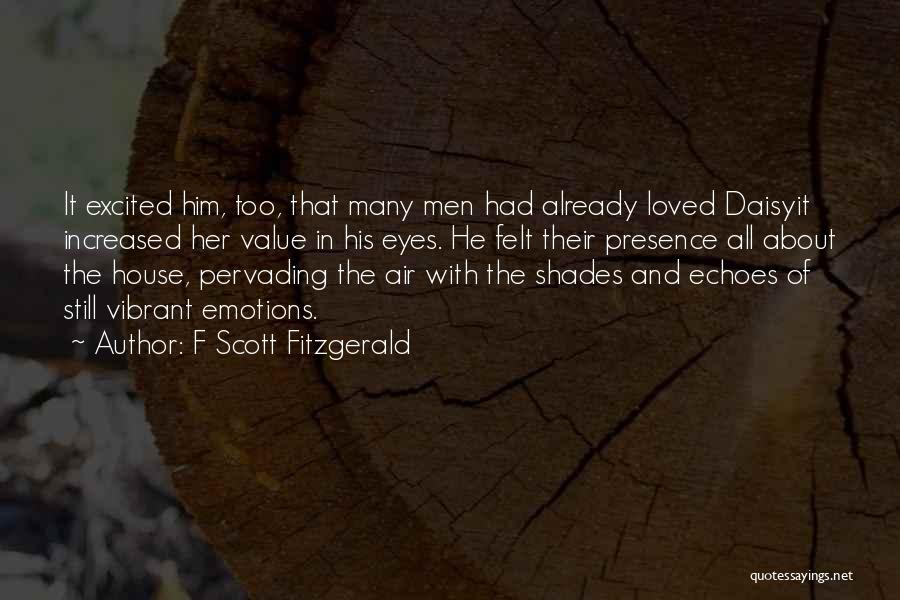
It excited him, too, that many men had already loved Daisy
it increased her value in his eyes. He felt their presence all about the house, pervading the air with the shades and echoes of still vibrant emotions. — F Scott Fitzgerald
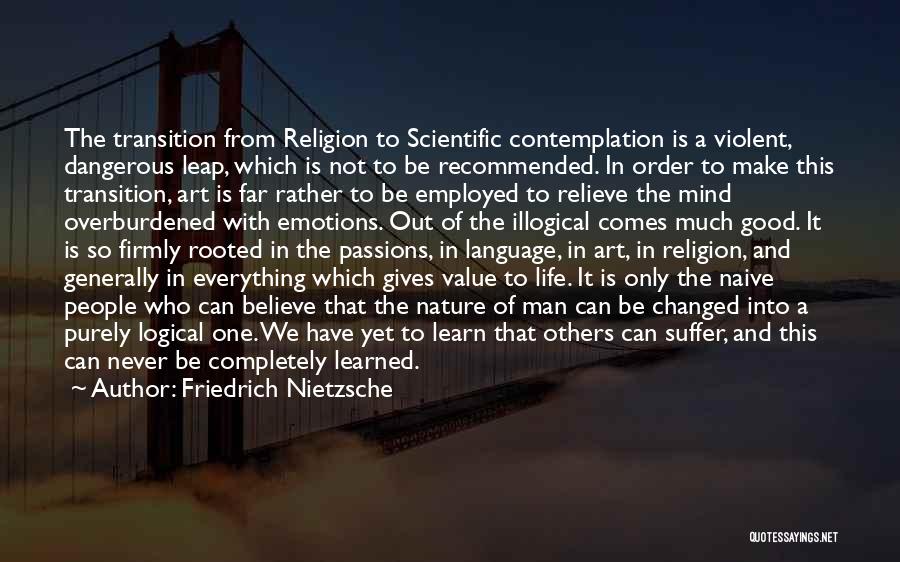
The transition from Religion to Scientific contemplation is a violent, dangerous leap, which is not to be recommended. In order to make this transition, art is far rather to be employed to relieve the mind overburdened with emotions. Out of the illogical comes much good. It is so firmly rooted in the passions, in language, in art, in religion, and generally in everything which gives value to life. It is only the naive people who can believe that the nature of man can be changed into a purely logical one. We have yet to learn that others can suffer, and this can never be completely learned. — Friedrich Nietzsche
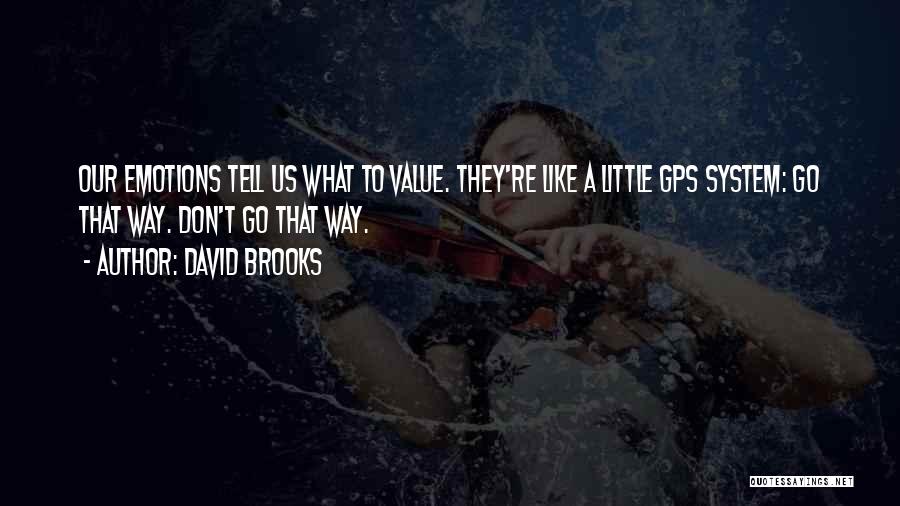
Our emotions tell us what to value. They're like a little GPS system: Go that way. Don't go that way. — David Brooks
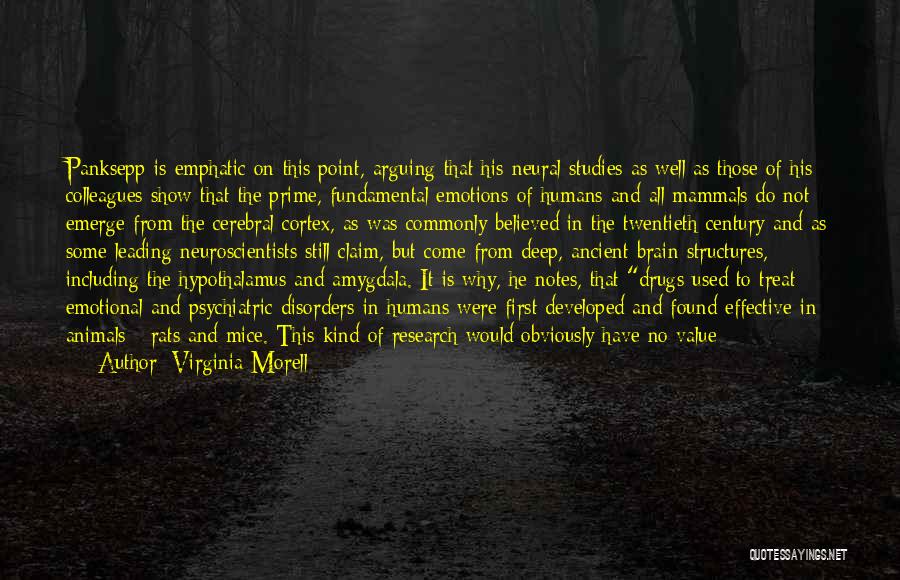
Panksepp is emphatic on this point, arguing that his neural studies as well as those of his colleagues show that the prime, fundamental emotions of humans and all mammals do not emerge from the cerebral cortex, as was commonly believed in the twentieth century and as some leading neuroscientists still claim, but come from deep, ancient brain structures, including the hypothalamus and amygdala. It is why, he notes, that "drugs used to treat emotional and psychiatric disorders in humans were first developed and found effective in animals - rats and mice. This kind of research would obviously have no value if animals were incapable of experiencing these emotional states, or if we did not share them. — Virginia Morell

Narrative storytelling enables us to derive ideas from the disparate facts, incongruent motives, conflicting emotions, and other absurdities inherent in living dynamically. The narrative that we select to tell our life story acts as a lens that assigns value to our shape shifting experiences: it pulls humor from catastrophes; it places a patina of irony over our checkered history; it allows us to explore our pessimism; and it provides a platform from which vantage point we can optimistically view the future. — Kilroy J. Oldster
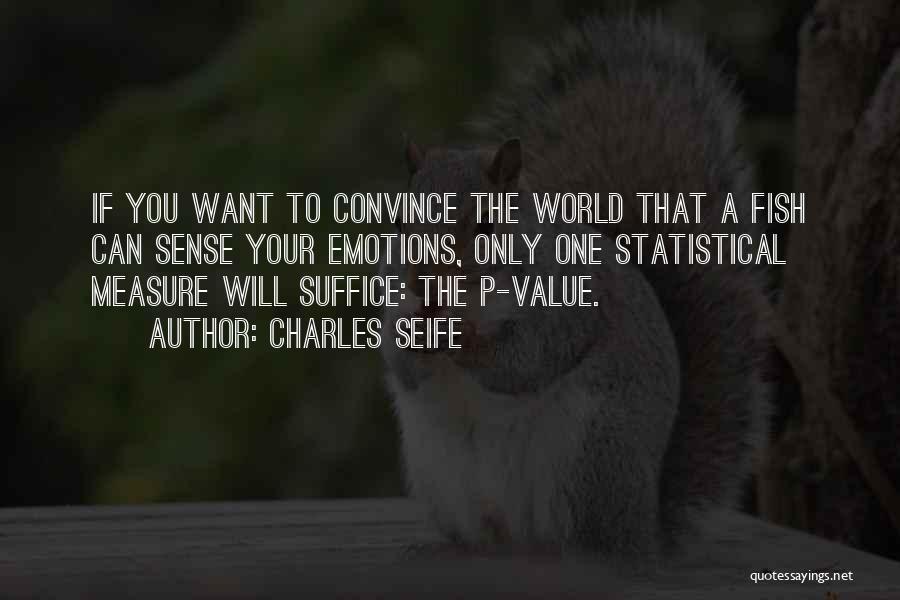
If you want to convince the world that a fish can sense your emotions, only one statistical measure will suffice: the p-value. — Charles Seife
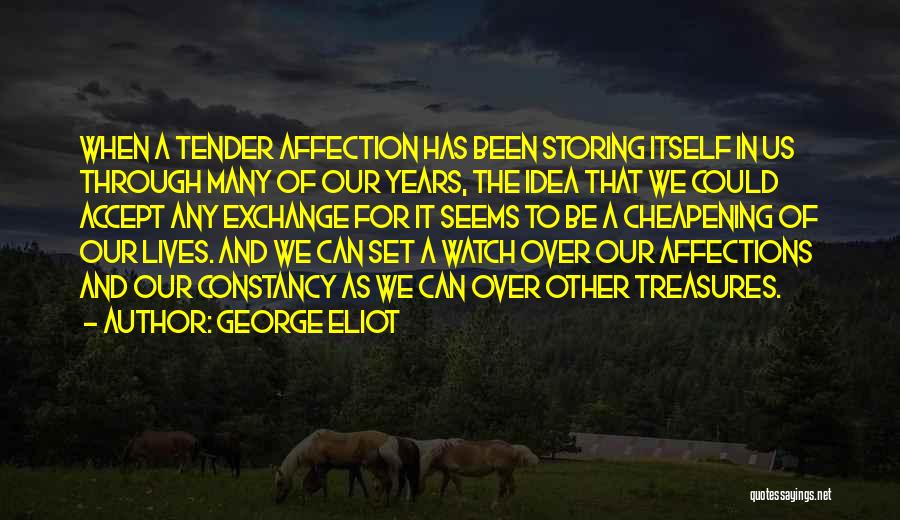
When a tender affection has been storing itself in us through many of our years, the idea that we could accept any exchange for it seems to be a cheapening of our lives. And we can set a watch over our affections and our constancy as we can over other treasures. — George Eliot
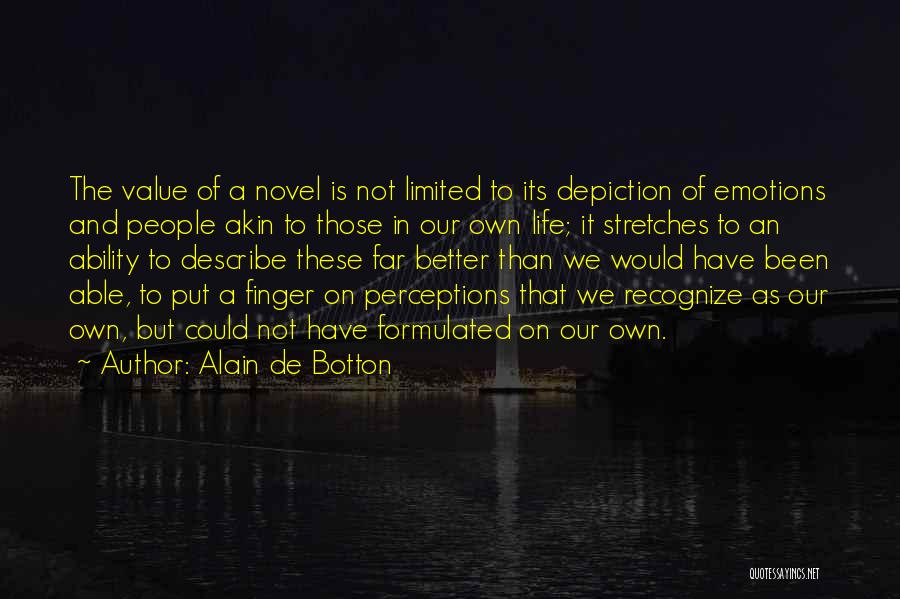
The value of a novel is not limited to its depiction of emotions and people akin to those in our own life; it stretches to an ability to describe these far better than we would have been able, to put a finger on perceptions that we recognize as our own, but could not have formulated on our own. — Alain De Botton

Many listeners have the experience of sharing the feelings that seem to be expressed by a piece of music[.] [T]he listener mirrors the feelings expressed by the music.
[...] The problem is that if listeners mirror the negative emotions they hear in music, then we seem to be landed with a paradox; [...] the "paradox of tragedy[.]" [P]eople apparently take great delight in watching and hearing about people in hideously unhappy situations and undergoing terrible suffering. [...] The musical version of the paradox is this: If people actually feel sad when they listen to sad music, why do they go on doing it? All they have to do is leave the room or flip the switch, and the music would vanish, along with the pain it causes. Yet people continue to listen, apparently complacently, to the most anguished and wrenching strains. [...] There must be some value to experiencing the sadness in sad music, or otherwise people would not do it; but what value can it have? — Jenefer Robinson
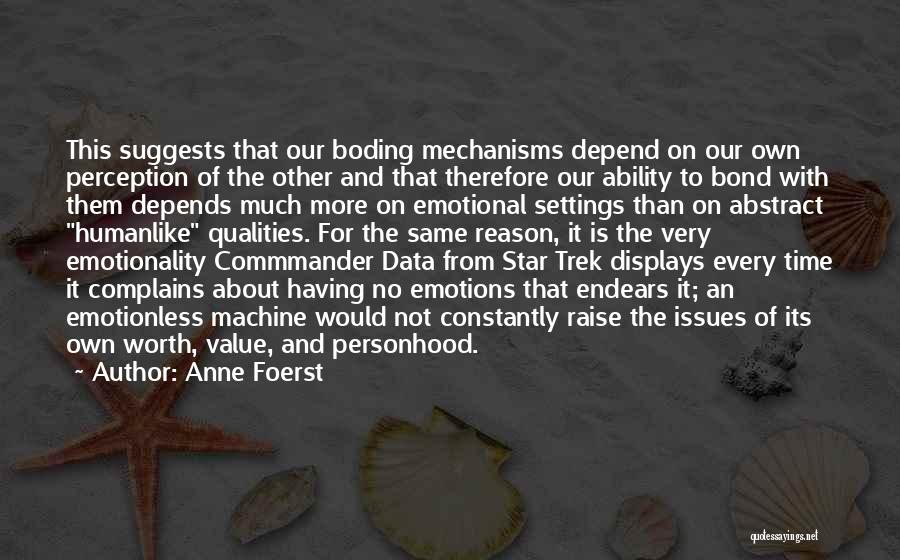
This suggests that our boding mechanisms depend on our own perception of the other and that therefore our ability to bond with them depends much more on emotional settings than on abstract "humanlike" qualities. For the same reason, it is the very emotionality Commmander Data from Star Trek displays every time it complains about having no emotions that endears it; an emotionless machine would not constantly raise the issues of its own worth, value, and personhood. — Anne Foerst
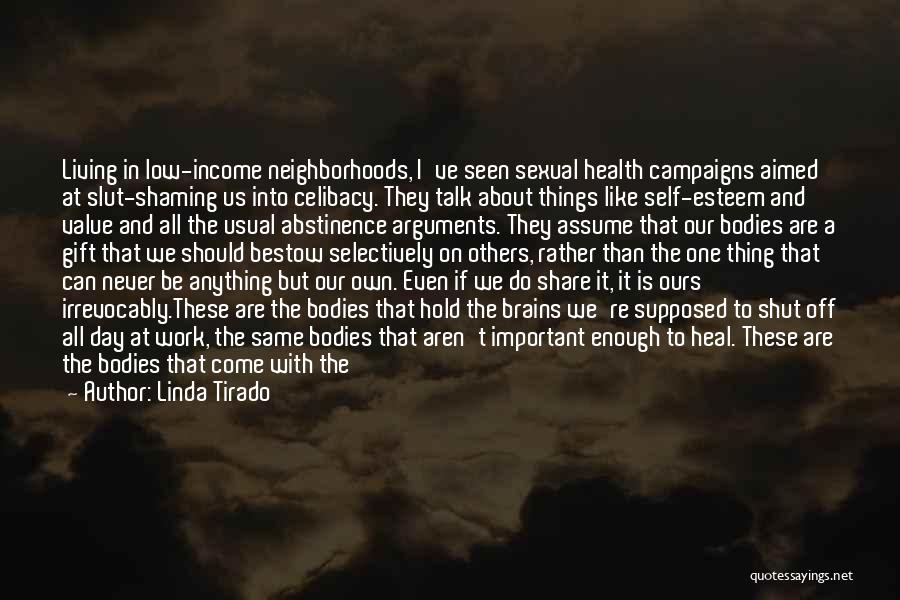
Living in low-income neighborhoods, I've seen sexual health campaigns aimed at slut-shaming us into celibacy. They talk about things like self-esteem and value and all the usual abstinence arguments. They assume that our bodies are a gift that we should bestow selectively on others, rather than the one thing that can never be anything but our own. Even if we do share it, it is ours irrevocably.
These are the bodies that hold the brains we're supposed to shut off all day at work, the same bodies that aren't important enough to heal. These are the bodies that come with the genitalia that we should be so protective of? I really don't understand the logic.
You can't tell us that our brains and labor and emotions are worth next to nothing and then expect us to get all full of intrinsic worth when it comes to our genitals. Either we're cheap or we're not.
Make up your fucking mind. — Linda Tirado
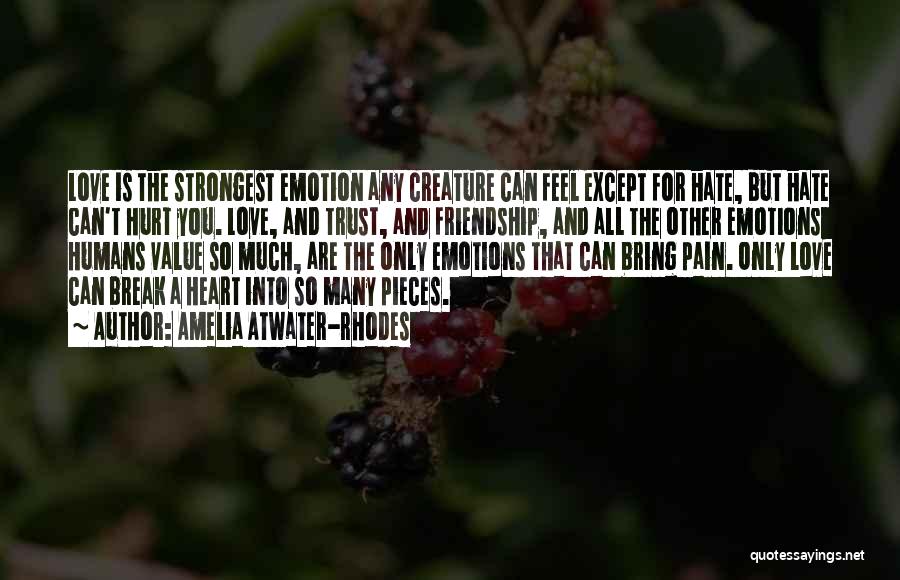
Love is the strongest emotion any creature can feel except for hate, but hate can't hurt you. Love, and trust, and friendship, and all the other emotions humans value so much, are the only emotions that can bring pain. Only love can break a heart into so many pieces. — Amelia Atwater-Rhodes

A modern teacher educates children to value their emotions. — Haim Ginott
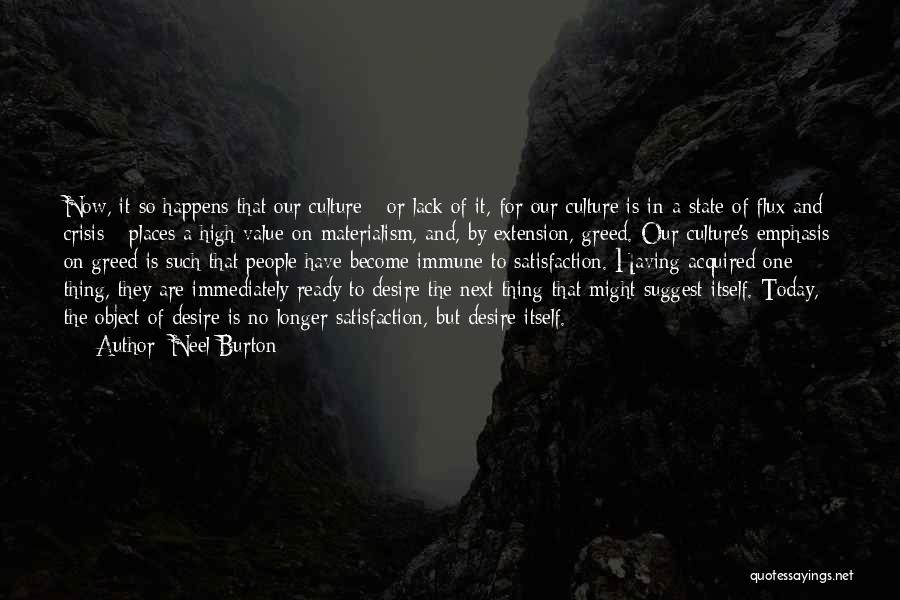
Now, it so happens that our culture - or lack of it, for our culture is in a state of flux and crisis - places a high value on materialism, and, by extension, greed. Our culture's emphasis on greed is such that people have become immune to satisfaction. Having acquired one thing, they are immediately ready to desire the next thing that might suggest itself. Today, the object of desire is no longer satisfaction, but desire itself. — Neel Burton

What is the evolutionary value of blushing? It seems not to be to our advantage to do it, to involuntarily reveal our inner emotions. If we're trying to manipulate or lie, actions in furtherance of individual goals as opposed to the goals of others, blushing would not seem to be helpful. And yet everyone blushes, except the psychopath. — Frans De Waal
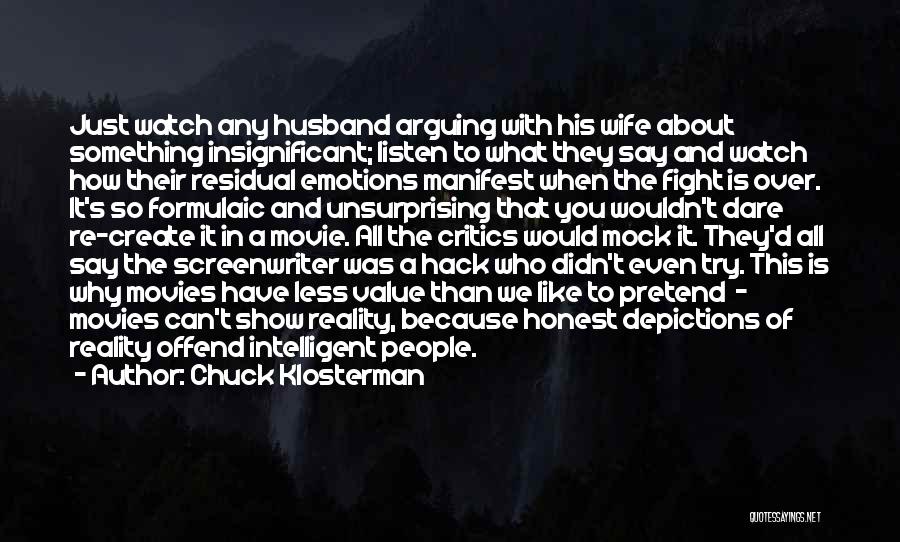
Just watch any husband arguing with his wife about something insignificant; listen to what they say and watch how their residual emotions manifest when the fight is over. It's so formulaic and unsurprising that you wouldn't dare re-create it in a movie. All the critics would mock it. They'd all say the screenwriter was a hack who didn't even try. This is why movies have less value than we like to pretend - movies can't show reality, because honest depictions of reality offend intelligent people. — Chuck Klosterman
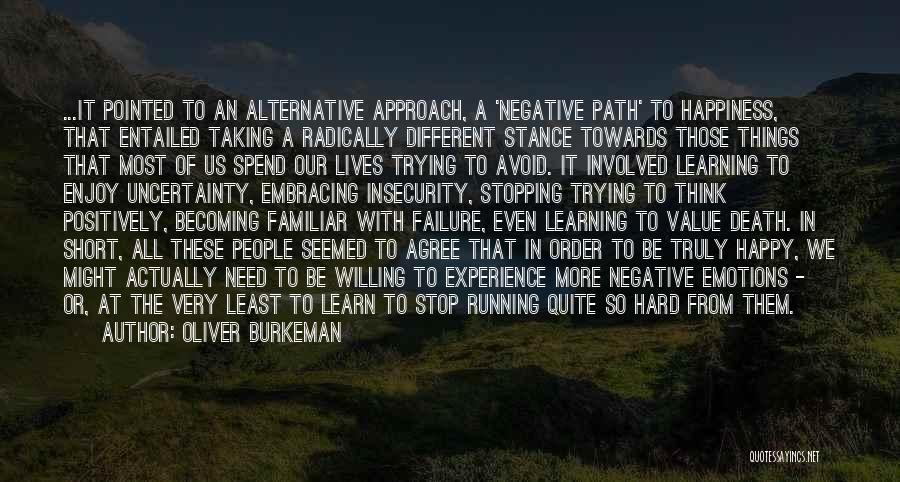
...it pointed to an alternative approach, a 'negative path' to happiness, that entailed taking a radically different stance towards those things that most of us spend our lives trying to avoid. It involved learning to enjoy uncertainty, embracing insecurity, stopping trying to think positively, becoming familiar with failure, even learning to value death. In short, all these people seemed to agree that in order to be truly happy, we might actually need to be willing to experience more negative emotions - or, at the very least to learn to stop running quite so hard from them. — Oliver Burkeman
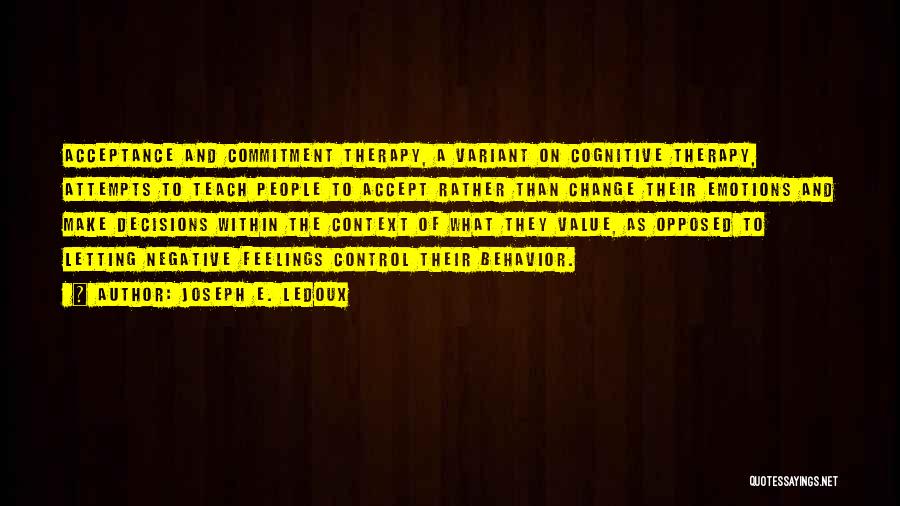
Acceptance and commitment therapy, a variant on cognitive therapy, attempts to teach people to accept rather than change their emotions and make decisions within the context of what they value, as opposed to letting negative feelings control their behavior. — Joseph E. Ledoux
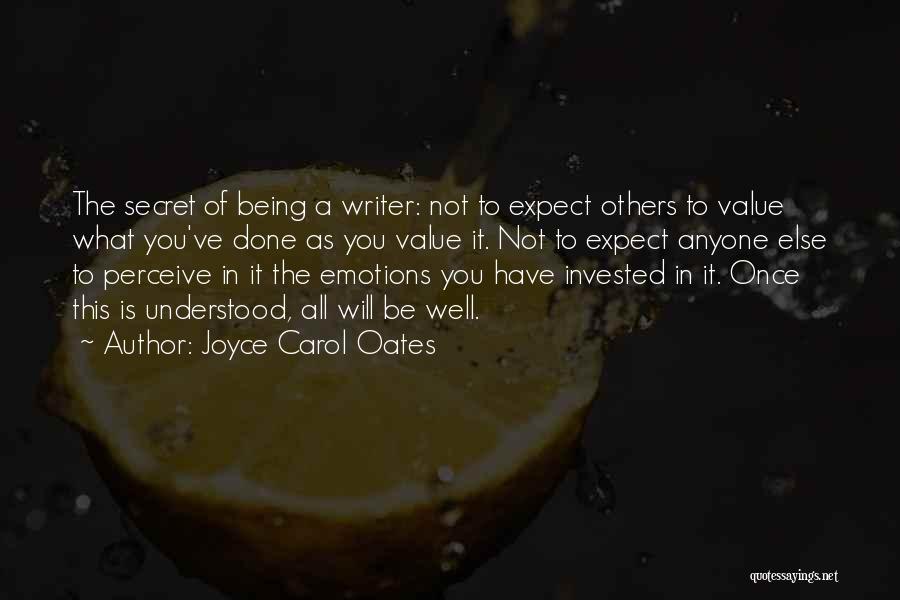
The secret of being a writer: not to expect others to value what you've done as you value it. Not to expect anyone else to perceive in it the emotions you have invested in it. Once this is understood, all will be well. — Joyce Carol Oates
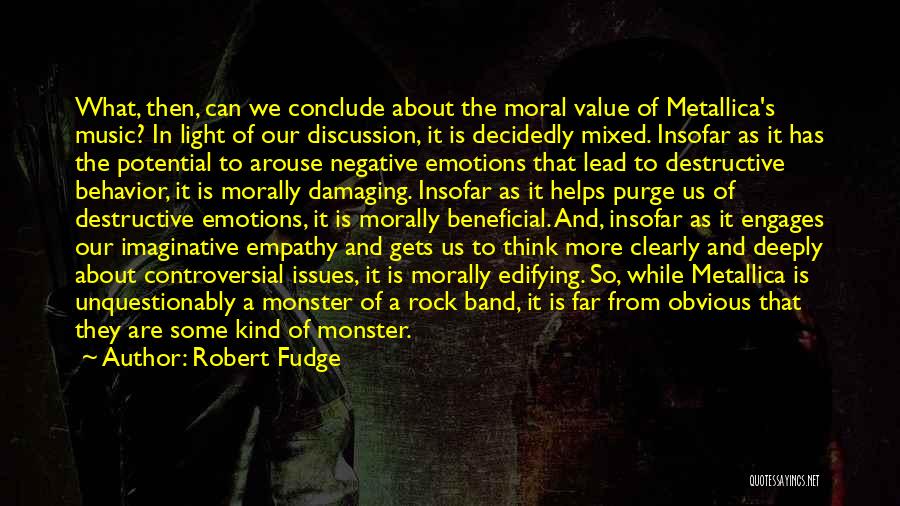
What, then, can we conclude about the moral value of Metallica's music? In light of our discussion, it is decidedly mixed. Insofar as it has the potential to arouse negative emotions that lead to destructive behavior, it is morally damaging. Insofar as it helps purge us of destructive emotions, it is morally beneficial. And, insofar as it engages our imaginative empathy and gets us to think more clearly and deeply about controversial issues, it is morally edifying. So, while Metallica is unquestionably a monster of a rock band, it is far from obvious that they are some kind of monster. — Robert Fudge

A writer observes. A writer records for posterity. The moments in the transience of the labyrinth of time that would go unrecorded otherwise! A writer records for value. A writer records for sentimentalism. A writer tries in earnest to carry the emotions and sentiments that make us what we ultimately are. For what are we? Empty spaces in an atom! — Avijeet Das
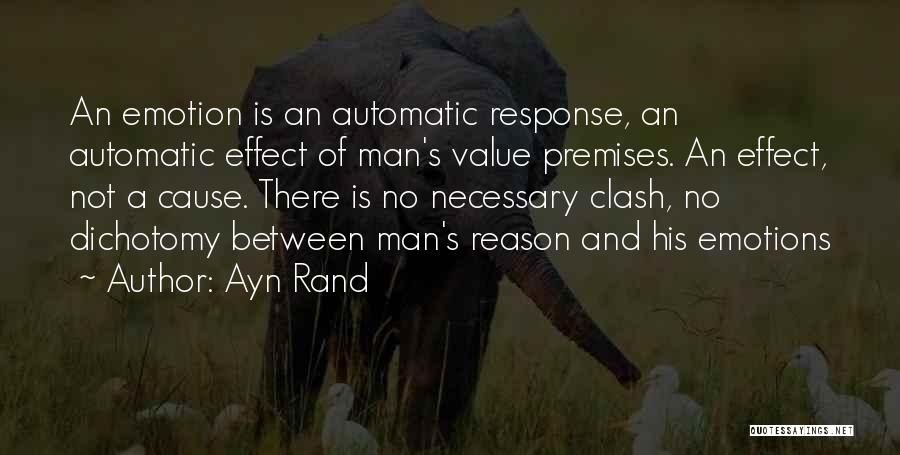
An emotion is an automatic response, an automatic effect of man's value premises. An effect, not a cause. There is no necessary clash, no dichotomy between man's reason and his emotions — Ayn Rand
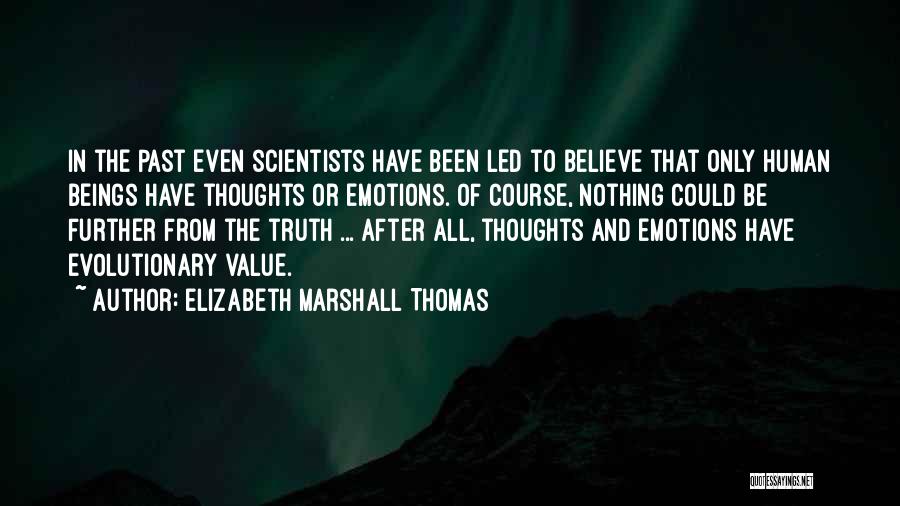
In the past even scientists have been led to believe that only human beings have thoughts or emotions. Of course, nothing could be further from the truth ... After all, thoughts and emotions have evolutionary value. — Elizabeth Marshall Thomas

It is rarely possible, when a human being is in deep need, to look upon somebody who offers help as merely another flawed human being with whom one is going to engage in a protracted conversation. A kind of wild idealization sets in, and we imagine the person in whom we confide to possess ineffable and valuable traits beyond those attainable by ordinary mortals. We ascribe value, and project qualities onto this person that almost never correspond with reality. It is a little bit like falling in love - powerful emotions are called forth. It takes a strong person not to exploit the ensuing power imbalance. — Jeffrey Moussaieff Masson
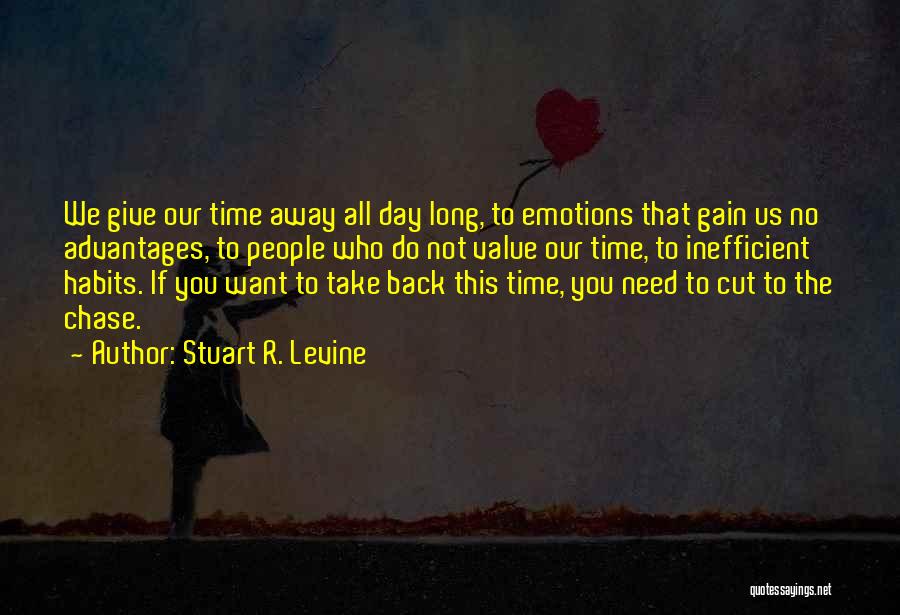
We give our time away all day long, to emotions that gain us no advantages, to people who do not value our time, to inefficient habits. If you want to take back this time, you need to cut to the chase. — Stuart R. Levine
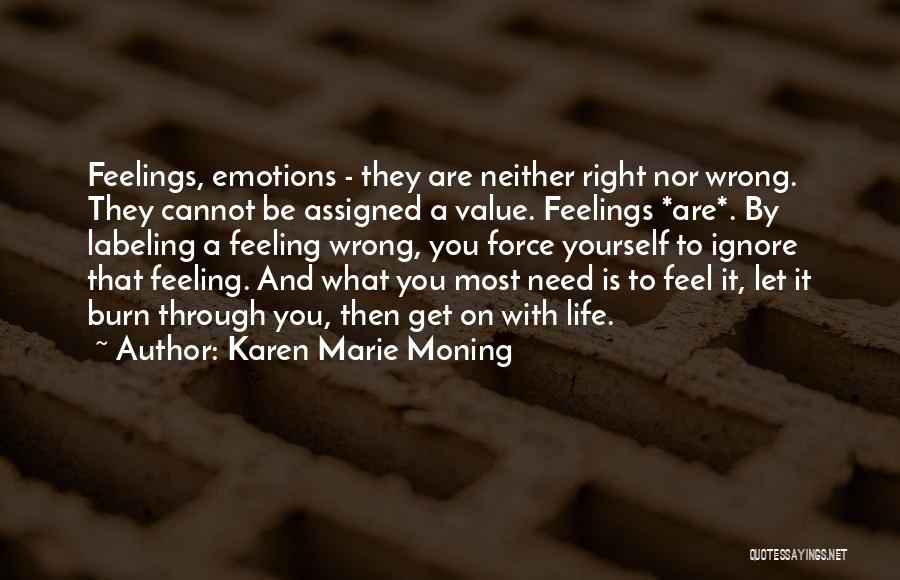
Feelings, emotions - they are neither right nor wrong. They cannot be assigned a value. Feelings *are*. By labeling a feeling wrong, you force yourself to ignore that feeling. And what you most need is to feel it, let it burn through you, then get on with life. — Karen Marie Moning
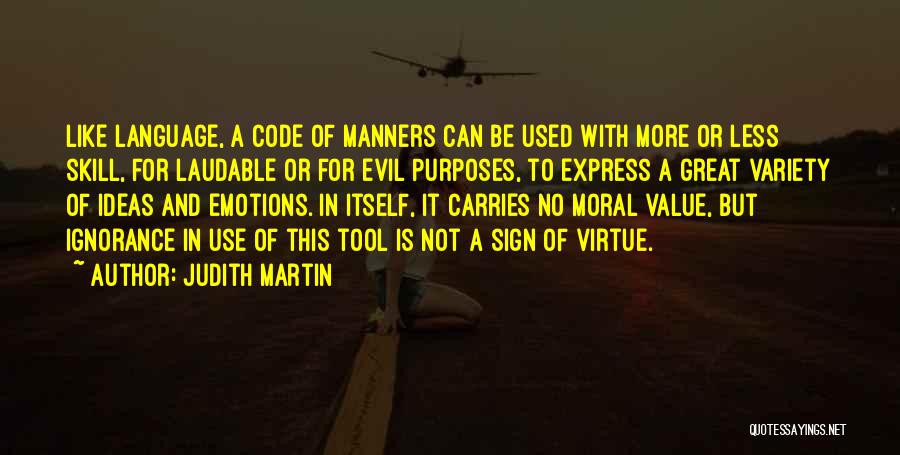
Like language, a code of manners can be used with more or less skill, for laudable or for evil purposes, to express a great variety of ideas and emotions. In itself, it carries no moral value, but ignorance in use of this tool is not a sign of virtue. — Judith Martin
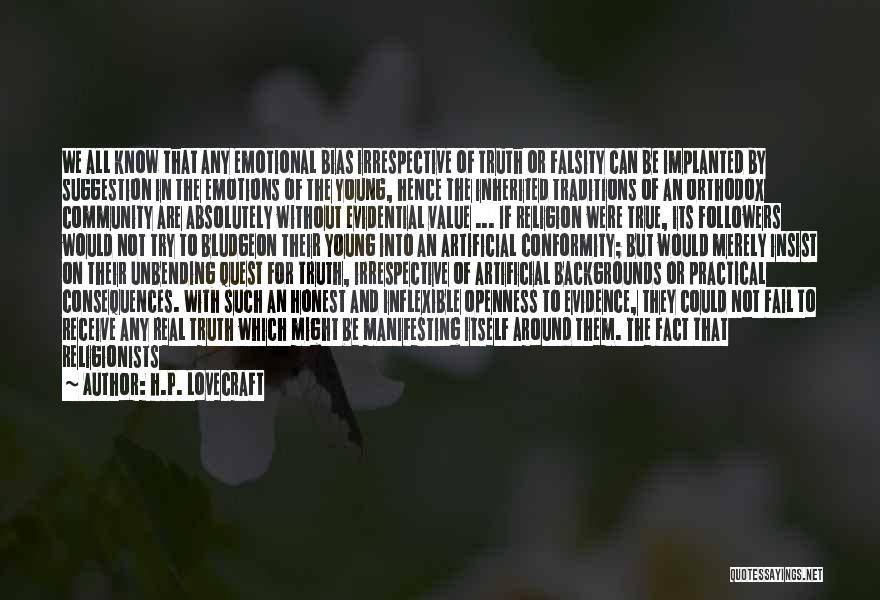
We all know that any emotional bias
irrespective of truth or falsity
can be implanted by suggestion in the emotions of the young, hence the inherited traditions of an orthodox community are absolutely without evidential value ... If religion were true, its followers would not try to bludgeon their young into an artificial conformity; but would merely insist on their unbending quest for truth, irrespective of artificial backgrounds or practical consequences. With such an honest and inflexible openness to evidence, they could not fail to receive any real truth which might be manifesting itself around them. The fact that religionists do not follow this honourable course, but cheat at their game by invoking juvenile quasi-hypnosis, is enough to destroy their pretensions in my eyes even if their absurdity were not manifest in every other direction. — H.P. Lovecraft
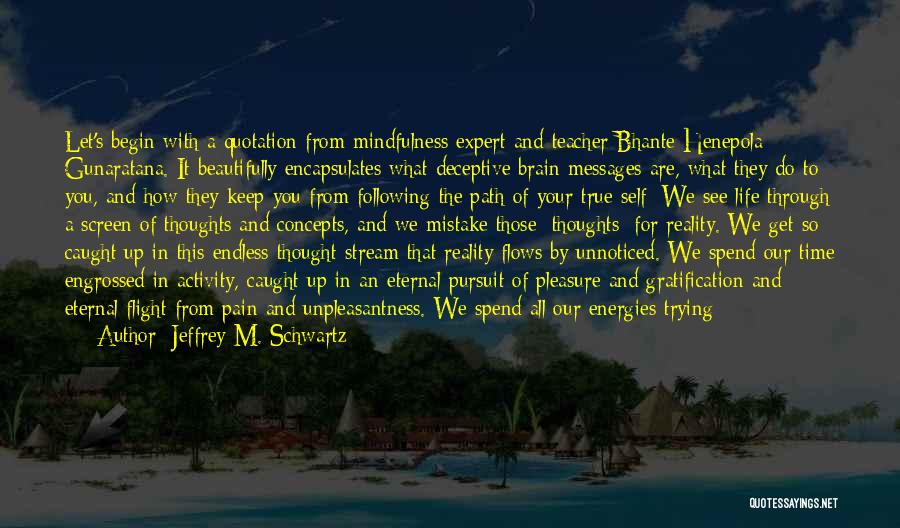
Let's begin with a quotation from mindfulness expert and teacher Bhante Henepola Gunaratana. It beautifully encapsulates what deceptive brain messages are, what they do to you, and how they keep you from following the path of your true self: We see life through a screen of thoughts and concepts, and we mistake those [thoughts] for reality. We get so caught up in this endless thought-stream that reality flows by unnoticed. We spend our time engrossed in activity, caught up in an eternal pursuit of pleasure and gratification and eternal flight from pain and unpleasantness. We spend all our energies trying to make ourselves feel better, trying to bury our fears, endlessly seeking security.16 To phrase it another way: We spend a considerable amount of our time engrossed in following deceptive brain messages until we begin to see them for what they are and value our true emotions and needs. — Jeffrey M. Schwartz

Do you want to kill his love for you? What sort of existence will he have if you rob him of the fruits of his ambition, if you take him from the splendour of a great political career, if you close the doors of public life against him, if you condemn him to sterile failure, he who was made for triumph and success? Women are not meant to judge us but to forgive us when we need forgiveness. Pardon, not punishment, is their mission. Why should you scourge him with rods for a sin done in his youth, before he knew you, before he knew himself? A man's life is of more value than a woman's. It has larger issues, wider scope, greater ambitions. A women's life revolves around curves of emotions. It is upon lines of intellect that man's life progresses. Don't make any terrible mistake, Lady Chiltern. A woman who can keep a man's love, and love him in return, has done all the world wants of women, or should want of them. — Oscar Wilde
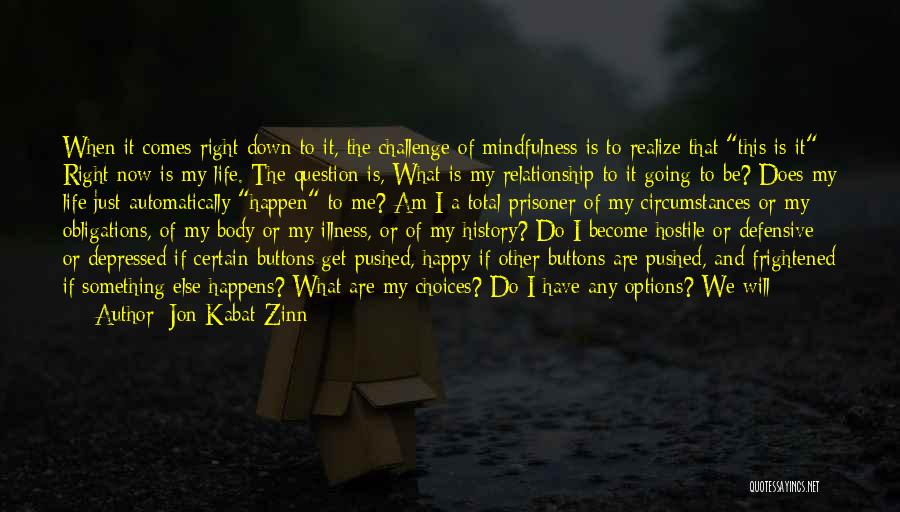
When it comes right down to it, the challenge of mindfulness is to realize that "this is it" Right now is my life. The question is, What is my relationship to it going to be? Does my life just automatically "happen" to me? Am I a total prisoner of my circumstances or my obligations, of my body or my illness, or of my history? Do I become hostile or defensive or depressed if certain buttons get pushed, happy if other buttons are pushed, and frightened if something else happens? What are my choices? Do I have any options? We will be looking into these questions more deeply when we take up the subject of our reactions to stress and how our emotions affect our health. For now the important point is to grasp the value of bringing the practice of mindfulness into the conduct of our daily lives. Is there any waking moment of your life that would not be richer and more alive for you if you were more fully awake while it was happening? — Jon Kabat-Zinn
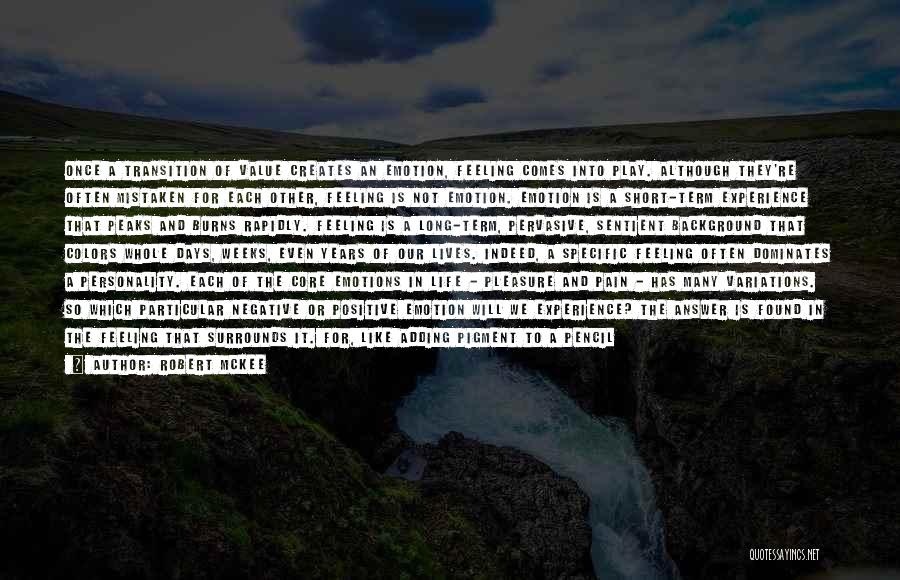
Once a transition of value creates an emotion, feeling comes into play. Although they're often mistaken for each other, feeling is not emotion. Emotion is a short-term experience that peaks and burns rapidly. Feeling is a long-term, pervasive, sentient background that colors whole days, weeks, even years of our lives. Indeed, a specific feeling often dominates a personality. Each of the core emotions in life - pleasure and pain - has many variations. So which particular negative or positive emotion will we experience? The answer is found in the feeling that surrounds it. For, like adding pigment to a pencil sketch or an orchestra to a melody, feeling makes emotion specific. — Robert McKee
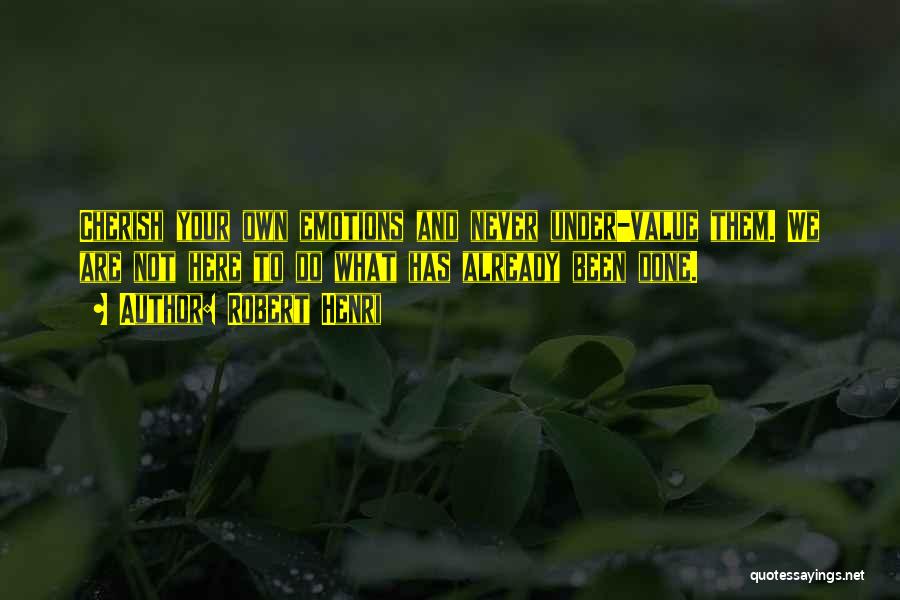
Cherish your own emotions and never under-value them.
We are not here to do what has already been done. — Robert Henri
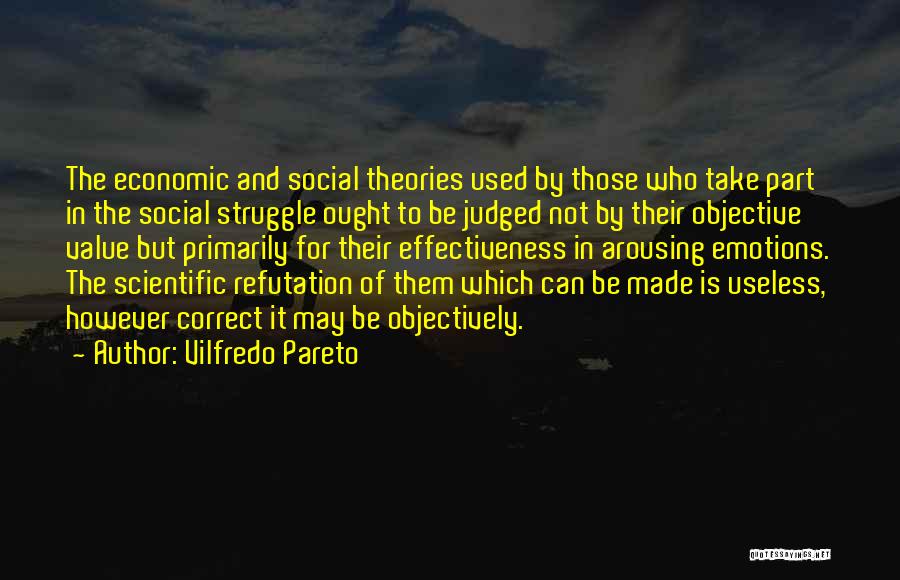
The economic and social theories used by those who take part in the social struggle ought to be judged not by their objective value but primarily for their effectiveness in arousing emotions. The scientific refutation of them which can be made is useless, however correct it may be objectively. — Vilfredo Pareto
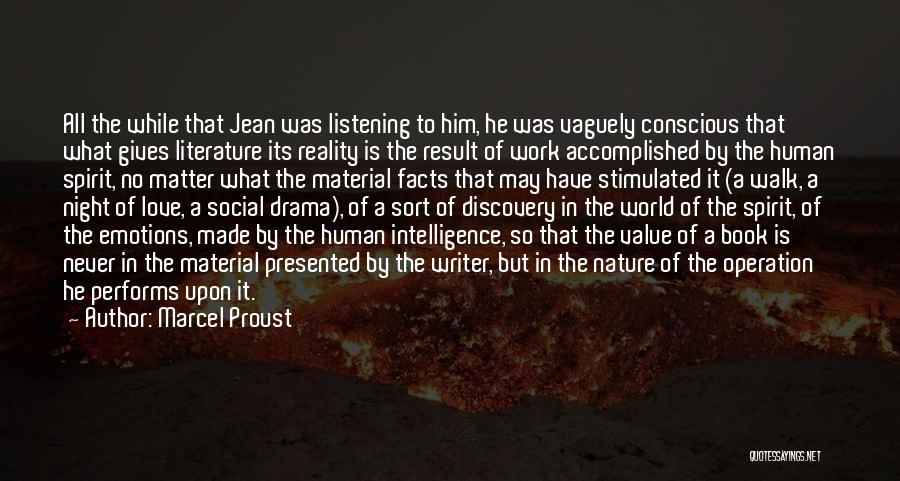
All the while that Jean was listening to him, he was vaguely conscious that what gives literature its reality is the result of work accomplished by the human spirit, no matter what the material facts that may have stimulated it (a walk, a night of love, a social drama), of a sort of discovery in the world of the spirit, of the emotions, made by the human intelligence, so that the value of a book is never in the material presented by the writer, but in the nature of the operation he performs upon it. — Marcel Proust
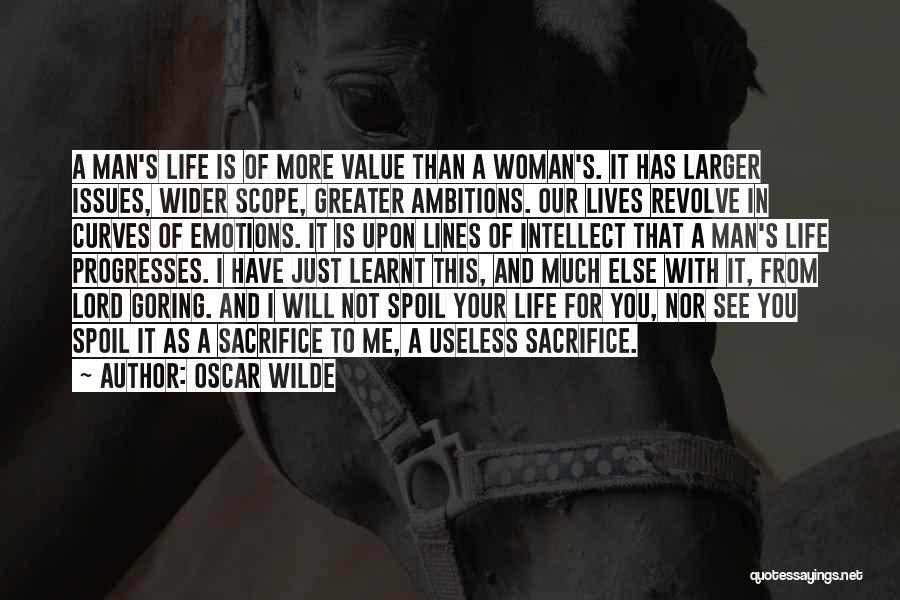
A man's life is of more value than a woman's. It has larger issues, wider scope, greater ambitions. Our lives revolve in curves of emotions. It is upon lines of intellect that a man's life progresses. I have just learnt this, and much else with it, from Lord Goring. And I will not spoil your life for you, nor see you spoil it as a sacrifice to me, a useless sacrifice. — Oscar Wilde






